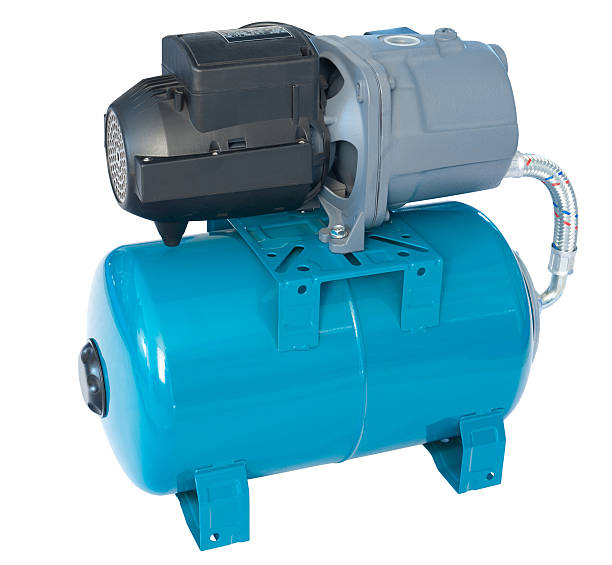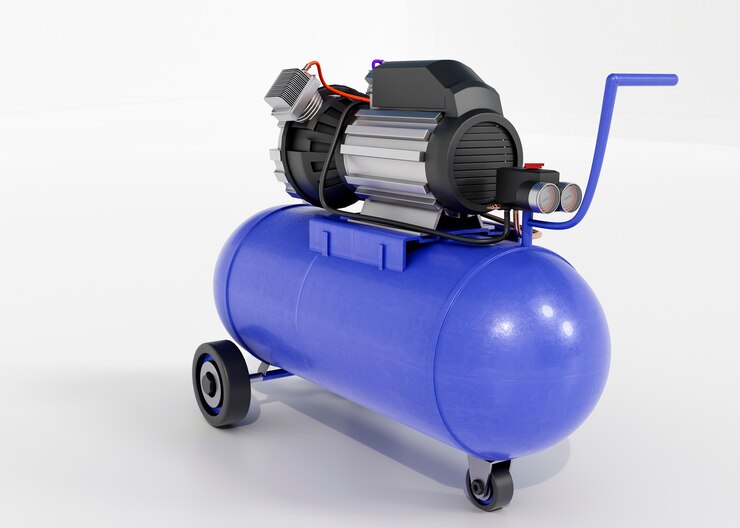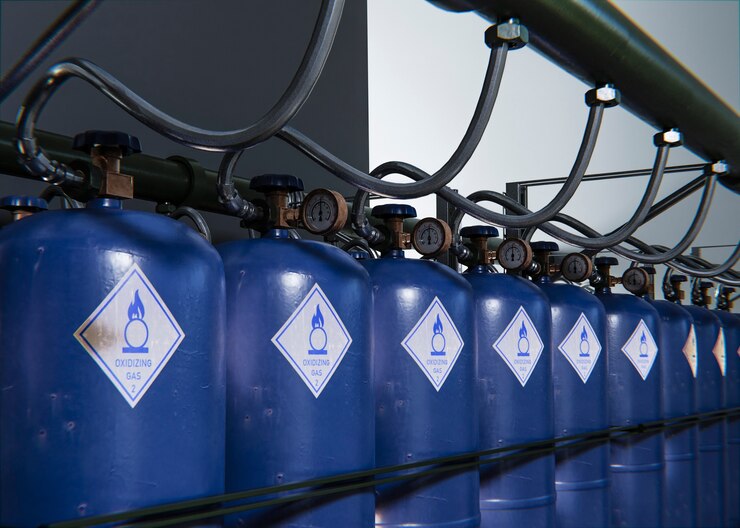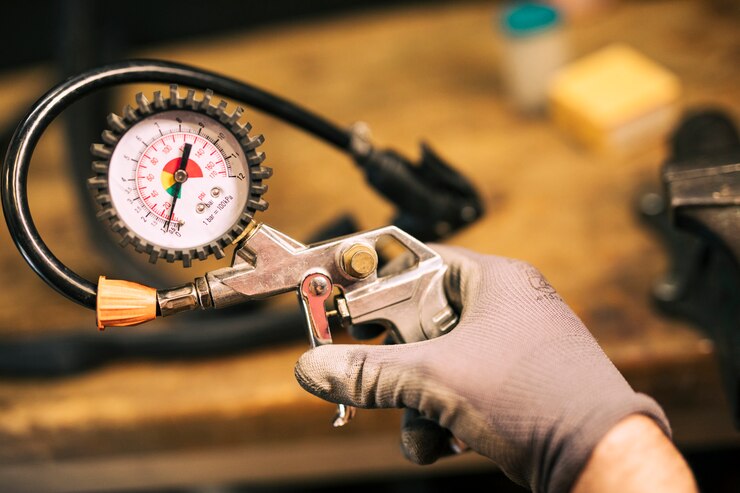Small Gas Compressor Guide: Power, Freedom & the Perfect Choice for You
The Mighty Mite: A Comprehensive Guide to Small Gas Compressor
Small gas compressor is lightweight, portable, small, and powerful devices that come in an easy-to-transport form. These multipurpose instruments are perfect for a range of tasks, such as airbrushing, refuelling paint sprayers, and inflating tires and air tools. A gas compressor may be a useful tool to have in your toolbox, whether you’re an outdoor explorer, professional contractor, or DIY enthusiast.
This in-depth manual delves deeply into the world of small gas compressors, giving you the knowledge and ability to select the ideal instrument for your purposes.
Unveiling the Powerhouse: Types of Small Gas Compressors
These gas compressors come in two main varieties:
- Reciprocating Compressors:
Reciprocating compressors compress air by use of a piston that moves inside a cylinder, much like a piston engine. They are renowned for being easy to use, reasonably priced, and capable of handling a broad variety of pressures. In contrast to other kinds, they can vibrate more and be louder.
- Rotary screw compressors:
These collect and compress air using meshing rotors. Compared to reciprocating compressors, they provide smoother airflow, quieter operation, and overall greater efficiency. They might not reach the same high pressures as other reciprocating types, though, and they are often more expensive.
Understanding the Language of Power: Key Specifications Explained
Understanding important a spec is essential when choosing a small gas compressor. A summary of the most significant ones is provided below:
- Cubic Feet per Minute:
They measure how much air a compressor can produce in a minute. Greater capacity to power demanding instruments or rapidly inflate huge things is indicated by a higher CFM.
- Pounds per Square Inch:
It is a unit of measurement for the pressure a compressor can produce. Select a PSI value higher than the tools or tasks you want to utilize for demand in terms of pressure.
- Horsepower (HP):
A measure of engine power output that affects PSI and CFM. In general, greater air production and pressure capacities correspond with higher horsepower.
- Capacity of Air Tank:
This represents the amount of compressed air that can be kept in the tank. Longer periods of operation before needing to refuel are possible with bigger tanks.
A World of Possibilities: Applications of Small Gas Compressors:
A small gas compressor is significantly more powerful and adaptable than the previously listed examples. Here’s a closer look at a few particular uses:
- Industrial Applications:
Pneumatic actuators in automated machinery, cleaning supplies, and sandblasters for surface preparation are just a few of the applications for small compressors in the industrial world.
- Agriculture and landscaping:
Small compressors make it easier to maintain equipment such as pneumatic pruners and to power devices that disperse seeds or suppress weeds.
- Medical and Dental Fields:
To power drills and other equipment, dental clinics use tiny compressors. They could be employed as nebulizers or for other specific purposes in certain medical contexts. If appropriate, include an internal link to a pertinent article on medical air compressors on your website.
- Aquaculture and Pool Maintenance:
Small compressors are an effective way to power equipment for cleaning pools or aerating fish tanks and ponds.
Beyond the Explicit:
Your imagination is the sole restriction on the genuinely creative uses for tiny gas compressors. This adaptable equipment may be a useful asset in a variety of settings, from powering paintball guns for recreational usage to inflating kites for professional photography.
The Importance of Matching Needs with Capabilities:
When investigating applications, keep in mind that it’s critical to confirm that the parameters of the compressor you’ve selected meet the pressure and flow needs of the desired operation.

Choosing Your Perfect Match: Selecting the Right Small Gas Compressor:
It might be confusing to choose the best gas compressor for your requirements when there are so many available. But do not worry! You can choose the ideal compressor for your projects and make an educated choice by taking these important aspects into account.
- Strength and Efficiency:
These two powerful numbers indicate how much air volume and pressure the compressor can supply. Make sure the model you select satisfies or surpasses the CFM and PSI specifications of the tools or applications you want to use. To find out the exact air consumption ratings of your air tools, see their manuals.
- Convenience and Portability:
Lightweight and compact designs are preferred if mobility is of the utmost importance. While wheelbarrow compressors offer a larger tank capacity and improved mobility because of their wheels, pancake compressors are compact and simple to store.
- Ease of Use:
Simple controls, pressure gauges for output monitoring, and easily accessible drain valves for eliminating moisture accumulation are examples of characteristics that make a product easy to operate. Quick-connect couplers are a good option if you want to attach and remove tools quickly.
- Level of Noise:
Give quieter choices priority in areas where noise is a concern. In general, reciprocating compressors are noisier than other screw compressors. Certain reciprocating compressors could come equipped with sound enclosures or mufflers to reduce noise.
- Brand Reputation:
Choose well-known manufacturers that are renowned for their dependable goods, easily accessible replacement parts, and excellent customer support. Examine internet evaluations and contrast the warranty provisions provided by various manufacturers. You may choose the ideal small gas compressor to be your reliable companion in taking on different jobs and projects if you carefully weigh these variables and match them to your unique demands.
The Power of Convenience: Benefits of Using a Gas Compressor:
Frequently overlooked in favour of their bigger counterparts, these gas compressors provide a surprisingly wide range of benefits that make them essential equipment for professionals, do-it-yourselfers, and outdoor lovers alike. Let’s examine the strong advantages that make these little powerhouses so worthwhile:
- Unleash Your Freedom and Mobility:
These compressors, in contrast to their large, stationary counterparts, are the epitome of mobility. No matter where your projects or excursions take you, you can carry compressed air power with you thanks to their lightweight and compact designs. Whether you need to power air equipment at a client’s location, inflate tires on a remote construction site, or top off pool floats while camping, a tiny gas compressor provides unparalleled convenience and
- Unplug and Embrace Versatility:
These compressors don’t require power outlets, in contrast to electric air compressors. This opens up their possibilities for use in outdoor settings or scenarios without electricity. Their gas-powered nature offers unparalleled adaptability and independence from electrical limitations, from powering airbrush equipment at a street painting event to inflating life jackets on a boat.
- Cost-Effective Powerhouse:
Investing in a modest gas compressor is a more affordable option than buying specialized electric equipment for each activity. By replacing the need for several electric devices with one adaptable tool, you may save money and valuable storage space.
Easy Upkeep and Maintenance:
The maintenance needs of small gas compressors are renowned for being easy to understand. The only maintenance usually required to keep your compressor operating properly for many years to come is routine oil changes (for types that are lubricated with oil), air filter cleaning, and condensation draining.
Adding a gas compressor to your toolkit will provide you with a dependable, lightweight, and efficient instrument that will enable you to operate independently while on the go and take on tasks with assurance. We’ll go over important maintenance advice for your tiny gas compressor in the next part to make sure it operates at peak efficiency for a long time.
Keeping Your Mighty Mite Mighty: Maintaining a Small Gas Compressor
With the right maintenance, your little gas compressor will flourish just like any other durable item. For years to come, make sure it runs smoothly and performs at its best with these crucial maintenance tips:
- Oil Changes:
As advised by your manufacturer, change your oil regularly. This keeps moving components lubricated and reduces wear and tear.
- Cleaning of the air filter:
To keep dust and debris out of the compressor, which can impair operation and harm internal parts, clean or replace the air filter regularly.
- Drain Condensation:
The air tank becomes moist. Drain the condensate from the tank regularly to stop rust and corrosion.
- Visual Inspection:
Frequently look for leaks, loose components, or any other obvious damage. Respond quickly to any problems.
Conclusion:
When looking for a trustworthy small gas compressor, LEIYAO shows up as a reliable resource. With a dedication to quality and a selection of models to meet a variety of requirements, we give you the confidence to take on projects and enjoy the independence that comes with portable compressed air. Explore the LEIYAO compressor selection on our website to find the ideal fit! Visit us now!



